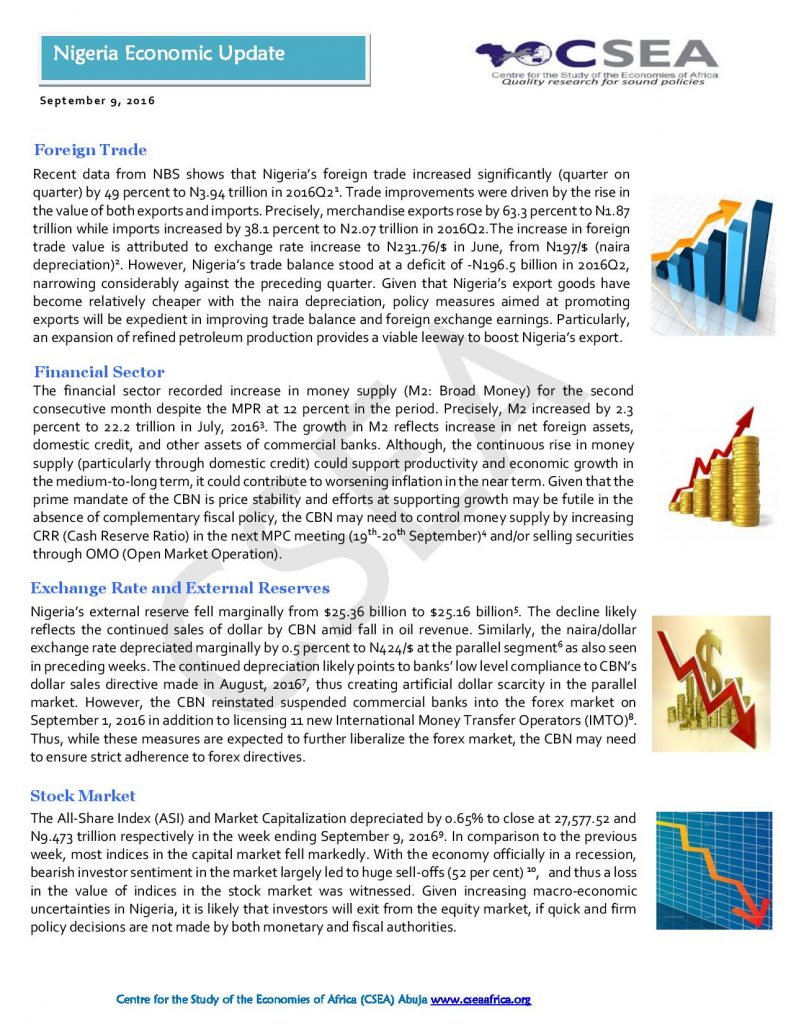Macroeconomic Report & Economic Updates

September 16, 2016
Nigeria Economic Update (Issue 39)
Nigerias
external reserve fell marginally by from $25.36 billion to $25.16 billion.
The decline likely reflects the continued sales of dollar by CBN amid fall in
oil revenue. Similarly, the naira/dollar exchange rate depreciated marginally
by 0.5 percent to N424/$ at the parallel segmentas also seen in
preceding weeks. The continued depreciation likely points to banks low level
compliance to CBNs dollar sales directive made in August, 2016,
thus creating artificial dollar scarcity in the parallel market.
Related
Nigeria Economic Review
Global economic growth remained
fairly stable in 2016Q3 with baseline projections for global growth at 3.1 percent and 2.4
percent by International Monetary Fund (IMF) and the World Bank respectively.
Growth in developed countries was moderate but unevenly distributed: while the
U.S and the UK showed improvements, growth in other economies remained tepid.
Among emerging countries, India witnessed higher growth while growth in China
remained constant but the Chinese Yuan continued to appreciate. Given that
India is Nigerias major crude oil importer, improving economic conditions in
India may translate into rising demand for Nigerias crude oil. However, the
continuous appreciation of the Yuan poses significant inflationary threat in
Nigeria given the high level of imports from China. Subdued global demand, weak
trade, uncertainties in commodity prices and consequences of the Brexit were
the key constraining factors to growth over the period. In addition, growth in
Sub-Saharan African countries remained generally slow on the account of low
commodity price, political turmoil, and inconsistent government policies.
